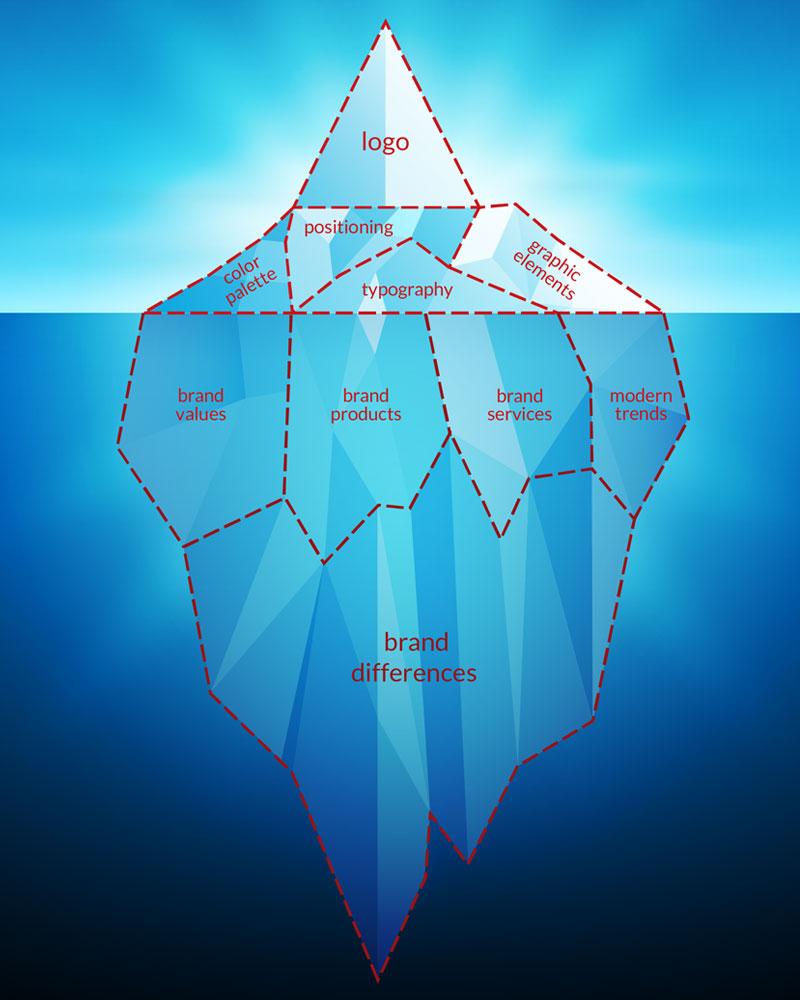
Do you ever feel like your logo is just sitting there on your website, twiddling its thumbs, waiting to be noticed by those elusive search engine robots? Fear not, logo-lovers, because we’ve got the complete guide to enhancing your logo for some sweet SEO success. Get ready to give your logo the digital makeover it deserves, complete with fancy meta tags, keyword-rich alt text, and maybe even a funky new color scheme. It’s time to show those search engines that your logo ain’t just a pretty face – it’s a SEO superstar in the making. Let’s dive in and make your logo shine bright like a diamond on the SERPs!
colors-and-fonts”>Choosing the Right Colors and Fonts
When it comes to for your project, it’s like picking out the perfect outfit for a first date - you want to make a good impression! So, let’s dive into the wonderful world of color and typography, shall we?
First things first, let’s talk about colors. Remember, colors have personalities too! Think about what kind of vibe you want to convey. Are you going for a bold and playful look? In that case, consider using bright and vibrant colors like hot pink or neon green. Or maybe you’re going for a more sophisticated and elegant feel. In that case, you might want to stick to cool tones like navy blue or emerald green.
Now, onto fonts. Fonts are like the voice of your design – choose the wrong one, and it’s like listening to nails on a chalkboard. So, be sure to pick a font that matches the personality of your colors. If you’ve gone for a fun and quirky color palette, why not pair it with a playful and whimsical font like Comic Sans or Papyrus (just kidding, please don’t use those)? For a more classic and timeless look, opt for a sleek and elegant font like Helvetica or Garamond.
Remember, there are no hard and fast rules when it comes to . Use your creativity and intuition to guide you. And most importantly, have fun with it! After all, design is all about self-expression and making a statement. So go ahead, paint the town red (or any color you fancy) with your fabulous color and font choices!
Optimizing Your Logo for Mobile Devices
So you’ve got a killer logo that looks amazing on desktop, but have you ever thought about how it looks on mobile devices? With more and more people browsing on their phones, it’s essential to make sure your logo is optimized for smaller screens. Here are some tips to make sure your logo shines on mobile:
- Keep it simple: Too many intricate details can get lost on a tiny screen. Stick to clean lines and bold colors that will pop on any device.
- Size matters: Make sure your logo is scalable so it looks good whether it’s shrunk down to fit on a phone screen or blown up on a tablet.
When designing your logo for mobile devices, think about the user experience. Is it easy to read and recognize at a glance? Is it clear what your brand is all about? Remember, your logo is often the first thing people see, so make sure it leaves a lasting impression.
So don’t let your logo get lost in the shuffle of tiny screens. With a few tweaks and adjustments, you can make sure your brand stands out no matter what device your audience is using. Take the time to optimize your logo for mobile devices, and watch your brand recognition soar!

Incorporating Relevant Keywords
So you want to boost your SEO game by into your content? Well, you’ve come to the right place! No more keyword stuffing or awkwardly shoehorning in random words that don’t make sense. Follow these tips and tricks for seamless keyword integration that will have search engines singing your praises.
First things first, do your research! You can’t just throw in any old word and hope for the best. Use tools like Google Keyword Planner or Moz to find out what terms are trending in your industry. Look for keywords that have high search volume and low competition for maximum impact.
Next, sprinkle those keywords throughout your content like confetti at a party. But remember, moderation is key. Don’t overdo it – aim for a keyword density of around 1-2%. This will keep your content sounding natural and not like a robot wrote it.
Finally, don’t forget about long-tail keywords. These phrases may not have as high of a search volume, but they are often more specific and targeted. Plus, they can help you rank for more niche topics. So get creative with your keyword choices and watch your organic traffic soar!

Utilizing Alt Text for Images
Alt text for images is like the unsung hero of web accessibility. It’s that little snippet of text that describes an image and brings it to life for those using screen readers or with slow internet connections. And let’s be real, we’ve all been guilty of slapping on some generic alt text like “image123” or “placeholder.jpg” in a hurry.
But fear not, dear reader! There’s a way to utilize alt text that not only meets accessibility standards but also adds a touch of whimsy to your website. How, you ask? Well, first off, keep it concise and descriptive. Instead of “woman running”, try something like “fierce lady sprinting to victory”.
Another fun trick is to inject a bit of personality into your alt text. For example, if you have an image of a cat wearing sunglasses, why not go with something like “cool cat soaking up the sun”? Trust me, your users will appreciate the effort (and probably get a chuckle out of it too).
Lastly, don’t forget to use alt text for important images like logos or buttons. It’s a small gesture that can make a big difference for those relying on screen readers to navigate your site. So go forth, fellow web warrior, and sprinkle some alt text magic on your images! Your users will thank you.
Increasing Website Speed for Better SEO Results
Do you find yourself constantly waiting for your website to load, only to realize it’s slower than a snail on a leisurely stroll? Well, fear not my friend, for I have some tips that will have your website speeding along like a racecar on the autobahn!
First things first, optimize those images! Don’t let those gigantically-sized images slow down your site’s performance. Use tools like Smush or TinyPNG to compress those images into submission!
Next, clean up that code! Just like your room after a wild party, your website’s code can get cluttered and messy. Use minification tools to remove unnecessary characters and spaces, making your code sleek and efficient.
And last but not least, leverage browser caching! Why make your website load everything from scratch every time someone visits? Set up caching rules to store static files on your visitors’ browsers, so they can load your site faster than you can say “SEO optimization!”
Measuring Success with Analytics Tracking
So you’ve implemented analytics tracking on your website and now you’re ready to measure your success. But how do you make sense of all those numbers? Fear not, we’re here to guide you through the maze of data like a GPS for your website.
First things first, let’s talk about the holy grail of analytics tracking: conversion rates. This is where the magic happens. Keep a close eye on this metric like a hawk watching its prey. If your conversion rates are soaring higher than a bird on caffeine, you’re on the right track. If they’re as flat as week-old soda, it might be time to shake things up.
Next up, let’s dive into the wonderful world of bounce rates. **Bounce rates** are like that awkward first date that ends in a swift exit. If your bounce rates are higher than a kangaroo on a trampoline, it’s time to reevaluate your content and make sure it’s keeping visitors engaged.
And finally, let’s not forget about **time on page**. This metric is like a fine wine – the longer it lingers, the better. If visitors are spending as much time on your page as they do at the DMV, you’re doing something right. But if they’re bouncing quicker than a pinball machine, it might be time to spruce up your content.
FAQs
Why is it important to enhance your logo for SEO?
Well, think of your logo as the face of your brand. Just like you wouldn’t leave the house without fixing your hair, you shouldn’t neglect your logo when it comes to SEO. Enhancing your logo for SEO can help boost your brand’s visibility in search engine results, making it easier for potential customers to find you online.
What are some ways to optimize your logo for SEO?
There are a few key strategies you can use to enhance your logo for SEO. One of the most important things you can do is to make sure your logo is high quality and visually appealing. This will not only help you stand out from the competition, but it will also make your logo more shareable, helping to increase its visibility online. Additionally, you can optimize your logo’s file name, alt text, and meta tags to include relevant keywords that will help search engines understand what your brand is all about.
How can incorporating schema markup help improve your logo’s SEO?
By incorporating schema markup into your logo, you can provide search engines with additional information about your brand, helping them better understand and index your logo. This can lead to improved visibility in search results, making it easier for potential customers to find you online. Plus, who doesn’t love a little extra markup in their SEO strategy?
Is it worth investing time and effort into enhancing your logo for SEO?
Absolutely! Your logo is often the first thing people see when they come across your brand, so it’s worth taking the time to make sure it’s as SEO-friendly as possible. Plus, by enhancing your logo for SEO, you can help improve your brand’s visibility online, driving more traffic to your website and ultimately increasing your bottom line. So go ahead, spruce up that logo and watch your SEO success soar!
The Ultimate SEO Logo Makeover
Congratulations, you’ve now mastered the art of enhancing your logo for SEO success! Remember, your logo is more than just a pretty picture – it’s a powerful tool that can boost your search engine rankings and drive more traffic to your website. So go ahead, get creative, and give your logo the makeover it deserves. Your SEO game will thank you!












